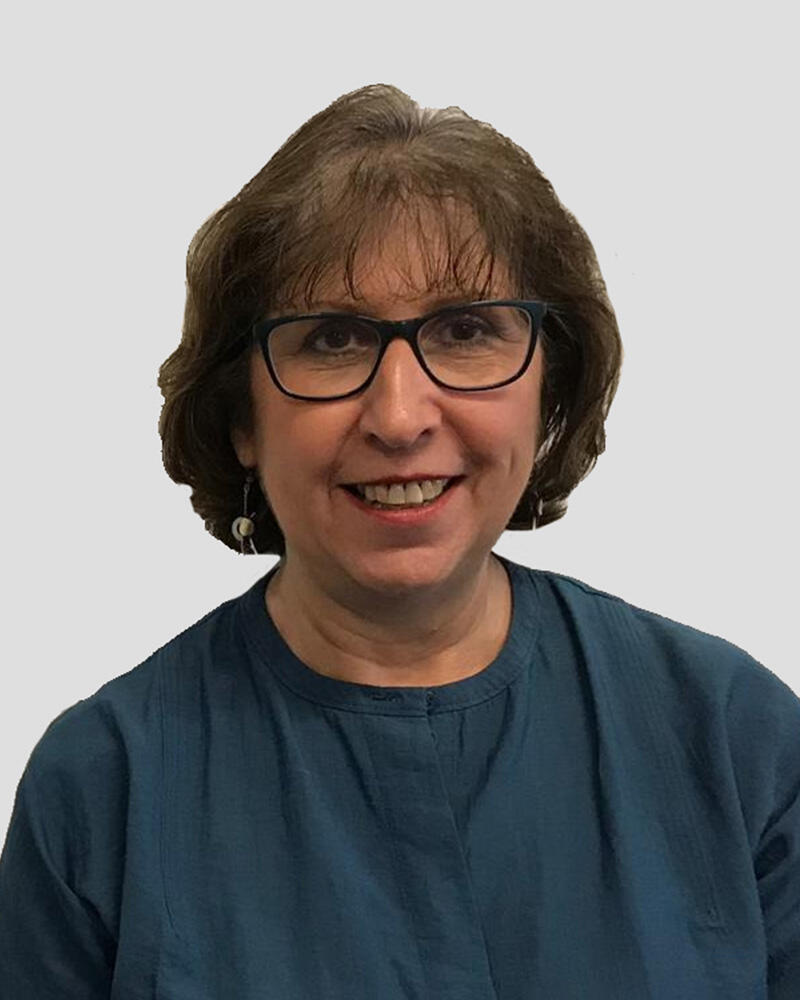Meet our executive director
With a professional background in nursing and over 25 years in humanitarian work, Isabel Simpson is MSF Ireland’s Executive Director.
Isabel first worked with MSF as medical coordinator in Bosnia in 1996 and since then has held many senior positions including Head of Mission in Sri Lanka, Zimbabwe, Pakistan, Somaliland and Iraq and as a Project Coordinator in North East India. Isabel has also worked as Executive Director of Programmes with MSF Australia.
Isabel has also worked as an independent humanitarian consultant, specialising in exploratory and start-up missions for other international emergency and development organisations working in places such as the Occupied Palestinian Territories, Chechnya, Iraq, Myanmar and Bangladesh.
Why did you join MSF?
I had worked for a couple of other international NGOs before I joined MSF and I wanted to do more than provide primary care in clinics. MSF was always present in the contexts where I was working and I really respected their principle of Temoinage, speaking out for affected populations. Over time I began to realise this was just as important as the tangible assistance or medical work and that it could bring about change in a wider aspect.
As a health professional, I also admired the quality of MSF’s programmes and the standard of care that they could provide to their patients, whether it was surgery, obstetrics, paediatrics or primary healthcare. Everyone deserves to have the best access to healthcare possible and I felt that was what MSF was doing, whether it was in the most remote bushlands of South Sudan or in conflict zones like Angola.
What are the standout rises you remember working on?
I was Head of Mission in Sri Lanka for four years during the war with the Tamils. MSF had three surgical hospitals in the area controlled by the Tamil Tigers and every month it was a challenge to find ways to get sufficient medical supplies and drugs across the front-lines, as we were heavily monitored by the Sri Lankan military. Nearly all the government medical staff had fled from the conflict area and the MSF teams were caring not only for the war-wounded but also the Tamil population who were trapped behind the front lines. The medics had very little diagnostic equipment – only one operating theatre and no x-ray facility - but we were still able to perform over 200 life-saving surgical procedures every month.
During my first mission in Bosnia in the mid-nineties, MSF had started an emergency mental health programme, based on counselling and cognitive therapies. At that time many professionals were very sceptical that it was actually possible to implement mental health care in such a setting but the dedicated counselling teams in Sarajevo and Zenica proved them wrong! It was one of the most impactful projects that I have had the privilege to experience in MSF. The trust and comfort that it brought back to the lives of women and men, who had gone through terrible years of war, isolation, loss and ethnic turmoil, was humbling.
"MSF is unique in both the technical expertise that they bring to the medical programmes and also their commitment to speaking out - not only in the emergencies where their teams are working, but also on a global level"
What sets MSF apart from other organisations?
MSF is unique in both the technical expertise that they bring to the medical programmes and also their commitment to speaking out - not only in the emergencies where their teams are working, but also on a global level, bringing attention to neglected diseases that are not on the research agenda, better treatment options for killer diseases like TB and Hepatitis C, and fairer access to medicines across the world. The relationship between the national and international staff is also very special – international staff come and go but the national staff provide the continuity in the programmes and their commitment is unwavering.
What opportunities are there for people in Ireland to work with MSF?
Ireland has a long tradition of humanitarian work and I’ve never worked in a country that did not welcome an Irish passport! People sometimes think that you need to be a doctor or nurse to work for MSF, but without the support and dedication of logistic and administrative staff the medics would not be able to do their jobs. Logistics encompasses a wide range of skills from technical or mechanical expertise to supplies, warehousing and security management. Additionally, there are also other support functions in communications, advocacy and humanitarian affairs. So whatever your background there will usually be a way for MSF to make good use of your skills. The Irish are also well known to be a sociable and friendly nation with a good sense of humour, often one of the most valued qualities in the field! Flexibility and a ‘can do’ attitude to get the job done are also qualities that we look for in sending people out on assignment.
What would you say to MSF’s supporters?
MSF is privileged to have so many generous supporters, whose donations are crucial to all aspects of our work. Our supporters enable us to operate independently of any governmental agendas, not only does this leave us free to provide healthcare based on need alone but it also enables us to access people in places that less independent organisations are unable to go.
Our supporters also ensure that MSF has the necessary resources available to rapidly respond to emergencies, enabling teams to provide care and assistance to those when they are most vulnerable. On behalf of our patients and our staff I’d like to offer my heartfelt thanks to all of MSF’s supporters, we couldn’t do it without you!
